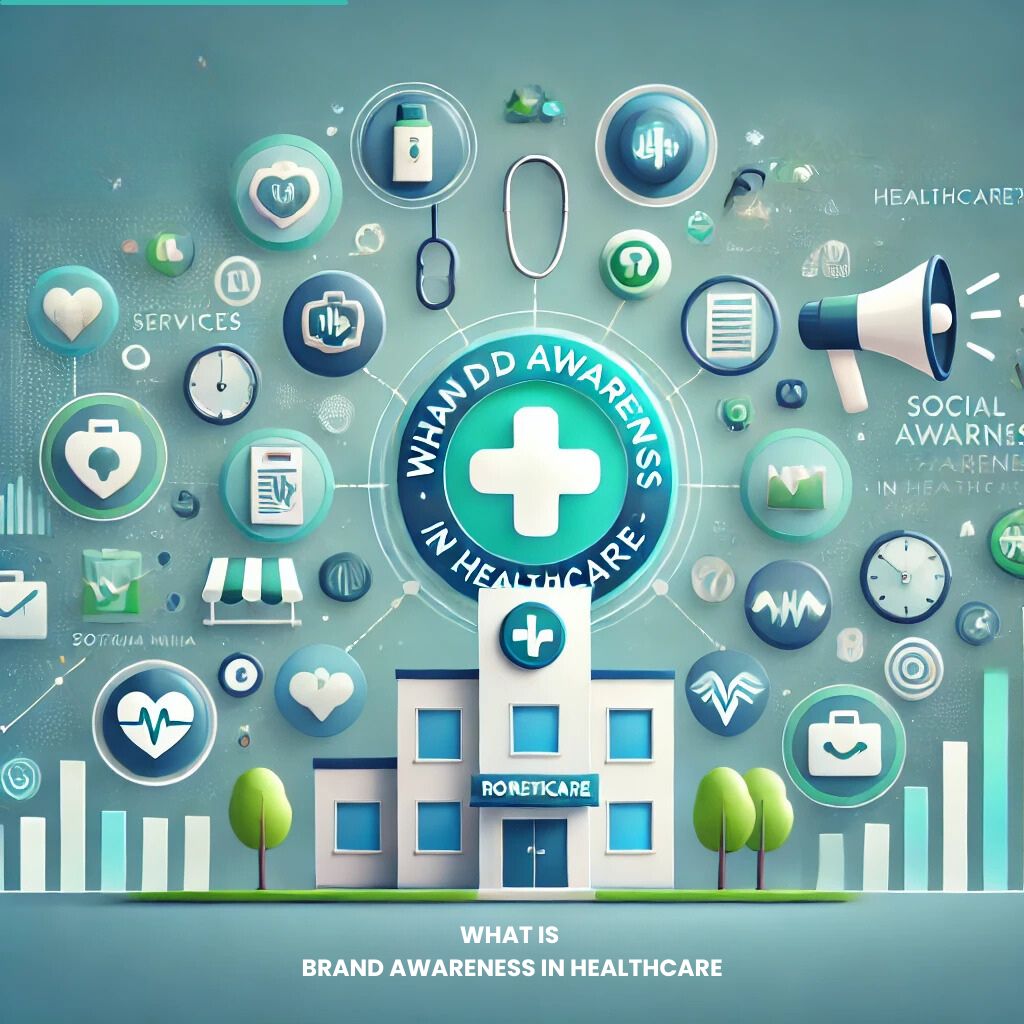Brand awareness is a fundamental concept in marketing, but its role in the healthcare industry is particularly unique and impactful. At its core, brand awareness refers to how familiar your target audience is with your brand and how well they can recognize it. In healthcare, brand awareness goes beyond simple recognition—it encompasses trust, credibility, and the ability to influence patient decisions.
The Importance of Brand Awareness in Healthcare
1. Building Trust and Credibility
In healthcare, trust is everything. Patients are more likely to choose a healthcare provider or facility they recognize and associate with positive attributes such as quality care, reliability, and compassion. Brand awareness helps create this connection, ensuring that your organization is top-of-mind when patients are making decisions about their health.
2. Differentiating Your Brand
With the healthcare landscape becoming increasingly competitive, brand awareness can set your organization apart from others. Whether you’re a hospital, clinic, or specialized practice, establishing a recognizable brand helps you stand out, attract more patients, and build loyalty over time.
3. Supporting Patient Engagement
Healthcare is moving towards a more consumer-driven model, where patients actively seek information and make decisions about their care. A strong brand awareness strategy ensures that your organization is visible and accessible during this decision-making process, allowing you to engage effectively with potential patients.
4. Driving Referrals and Word-of-Mouth
Patients who recognize and trust your brand are more likely to recommend your services to others. This organic growth, fueled by positive experiences and reputation, amplifies your reach and reinforces your brand’s presence in the community.
Key Strategies to Build Brand Awareness in Healthcare
1. Develop a Clear and Consistent Brand Identity
A strong brand starts with a clear identity. This includes:
- Logo and Visual Identity: Ensure your logo, color palette, and design elements are professional and memorable.
- Mission and Values: Communicate your organization’s mission and core values clearly across all channels.
- Voice and Tone: Use a consistent voice in all communications, reflecting your brand’s personality and ethos.
2. Leverage Digital Marketing
Digital marketing is a powerful tool for increasing brand awareness in healthcare. Some effective tactics include:
- Search Engine Optimization (SEO): Optimize your website with healthcare-specific keywords like “best cardiologist near me” to increase visibility in search engine results.
- Content Marketing: Publish informative and engaging content, such as blog posts, videos, and infographics, to educate your audience and position your brand as an authority in healthcare.
- Social Media: Use platforms like Instagram, Facebook, and LinkedIn to connect with your audience, share updates, and humanize your brand.
3. Invest in Patient Education
Educating your audience not only builds awareness but also establishes your organization as a trusted source of information. Examples include:
- Webinars and Workshops: Host online sessions on relevant health topics.
- Patient Guides and Resources: Offer downloadable guides on managing specific conditions or navigating healthcare services.
- Email Campaigns: Send regular newsletters with tips, news, and updates tailored to your patients’ needs.
4. Build Partnerships and Collaborations
Collaborating with other organizations, influencers, or community groups can expand your reach. Examples include:
- Partnerships with Local Businesses: Collaborate with gyms, wellness centers, or pharmacies to reach a broader audience.
- Influencer Marketing: Partner with healthcare influencers to promote your services authentically.
- Community Involvement: Sponsor local events or participate in health fairs to establish a presence in your community.
5. Enhance the Patient Experience
A positive patient experience directly impacts brand awareness. Satisfied patients are more likely to share their experiences, both online and offline, boosting your brand’s reputation. Focus on:
- Personalized Care: Tailor services to meet individual patient needs.
- Technology Integration: Use tools like online booking, telemedicine, and patient portals for convenience.
- Feedback and Reviews: Encourage patients to leave reviews and address feedback promptly to improve your services.
Measuring the Impact of Brand Awareness in Healthcare
Building brand awareness is only part of the equation; measuring its effectiveness is equally important. Here are key metrics to track:
- Website Traffic
- Monitor the number of visitors to your website and track how they engage with your content.
- Social Media Metrics
- Measure likes, shares, comments, and follower growth to gauge audience engagement.
- Search Engine Rankings
- Analyze how your website ranks for relevant healthcare keywords.
- Patient Acquisition Rates
- Track the number of new patients acquired over time as a result of your branding efforts.
- Referral and Word-of-Mouth Leads
- Measure the number of referrals and recommendations from existing patients.
- Patient Surveys
- Conduct surveys to understand patient perceptions of your brand and identify areas for improvement.
The Role of Technology in Building Brand Awareness
In today’s digital age, technology plays a crucial role in healthcare branding. Tools like Google Analytics, data analytics, customer relationship management (CRM) systems, and marketing automation can streamline your efforts and provide valuable insights into your audience’s preferences and behaviors.
By leveraging these tools, healthcare organizations can create more targeted and effective branding strategies, ensuring that their efforts resonate with their target audience.
Conclusion: Why Brand Awareness Matters in Healthcare
In the healthcare industry, brand awareness isn’t just about visibility—it’s about building trust, establishing credibility, and creating meaningful connections with patients. By focusing on strategies like digital marketing, patient education, and a consistent brand identity, healthcare organizations can ensure they remain top-of-mind for patients in need of care.
Whether you’re a small clinic or a large hospital, investing in brand awareness is an essential step toward long-term success in today’s competitive healthcare market.
FAQs
1. What is brand awareness in healthcare?
Brand awareness in healthcare refers to how familiar patients and the community are with a healthcare organization and its services. It includes recognition, trust, and reputation, which influence patients’ decisions.
2. Why is brand awareness important for healthcare providers?
Brand awareness is crucial for healthcare providers as it builds trust, differentiates them from competitors, and drives patient engagement. A well-recognized brand is more likely to attract and retain patients.
3. How can healthcare organizations improve brand awareness?
Healthcare organizations can improve brand awareness by developing a strong brand identity, leveraging digital marketing, educating patients, forming partnerships, and enhancing the patient experience.
4. What role does digital marketing play in healthcare brand awareness?
Digital marketing increases visibility and engagement through channels like social media, SEO, and content marketing. It helps healthcare organizations connect with patients and establish themselves as trusted authorities.
5. How can brand awareness be measured in healthcare?
Brand awareness can be measured using metrics like website traffic, social media engagement, search engine rankings, patient acquisition rates, and feedback from patient surveys.



